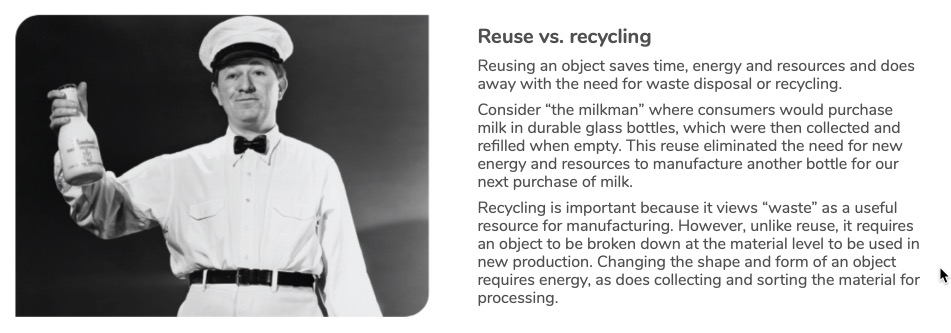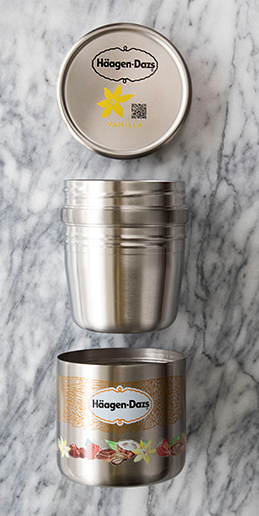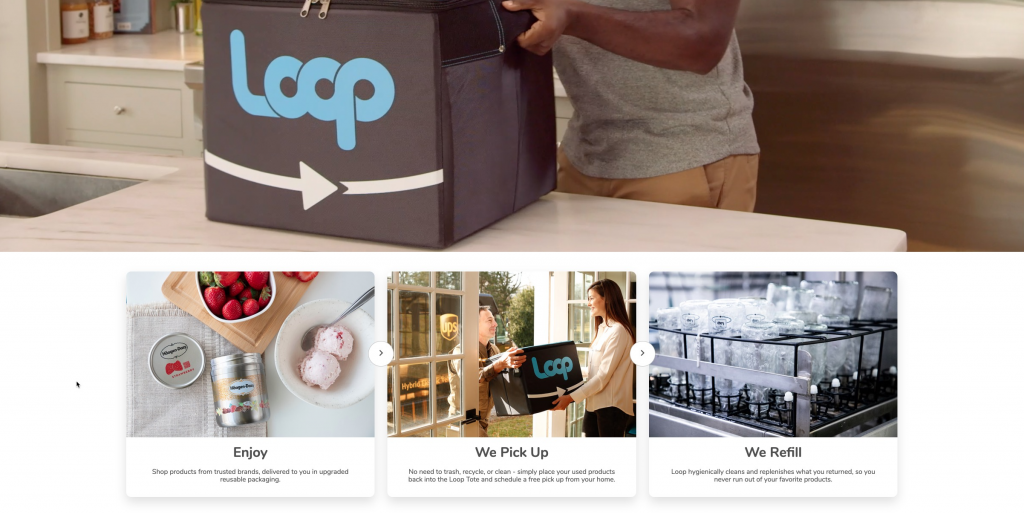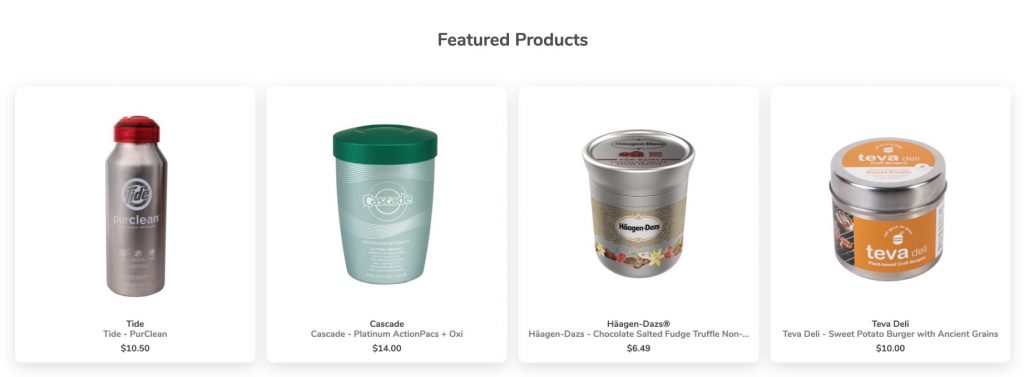By David Dodge and Kay Rollans
Disposability was sold as a convenience in the post-war years of the 1950s, but it’s become a plague of plastic and nonrecyclable trash that now pollutes every corner of the world.
It’s enough to make one nostalgic for the milkman—that reliable delivery person who not only dropped off milk in convenient glass bottles, but also picked them up again to be refilled and reused.
Ah, those were the days… and we may see those days again.
Loop—an online “circular shopping platform”—aims to revive the image and model of the milkman on a larger scale, offering customers door-to-door delivery of brand-name grocery store products in durable packaging that Loop will collect and use again.
Reusability: Back to the future
“Loop is a very utopian idea,” says Tony Rossi, Loop’s Philadelphia-based vice president of business development. “About three years ago, our CEO challenged us and himself to really solve the idea of waste at its core.”
For Loop, this means enabling brands and retailers—the heart of our “take, make, dispose” linear economy—to move away from single-use packaging into durable, multiuse containers. Ultimately, the idea is to spark a wider movement to a circular economy, an economic model based on getting us much use out of the products and resources that are already in circulation, and thereby reducing both consumption and waste.
The image of the milkman is a perfect embodiment of the circular economy.
“One of the things that we found with the milkman model was that the milk bottle was an asset that was owned by the milk company,” Rossi explained. This made it desirable for the milk company to invest more in its milk bottles, to ensure that they would be long-lasting and durable.
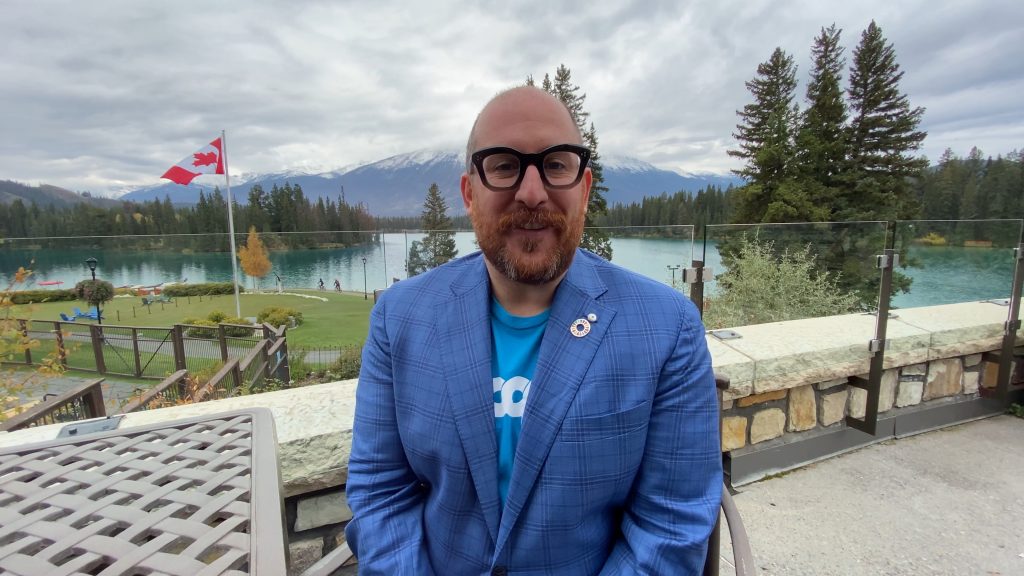
Tony Rossi of Loop at the Recycling Council of Alberta Conference. Photo David Dodge, GreenEnergyFutures.ca
From laundry detergent to ice cream
Much more than milk, you can buy a grocery list of goods from Loop: tea, laundry detergent, shampoo, even ice cream, all in reusable containers. Loop is working with some of the world’s biggest brands to test this back-to-the-future idea of selling products in reusable containers. The list Rossi gave of some of Loop’s early partners was impressive: Procter and Gamble, Unilever, Nestle, Clorox, Mars, and Danone, to name a few.
The containers Loop uses to ship these products aren’t your run-of-the-mill Ziplocs or Tupperware containers. Just as the milkman model would suggest, there is significant investment in high-quality, durably designed containers for Loop’s products.
“For me one of the most innovative and kind of jaw-dropping products so far has been the Häagen-Dazs ice cream container,” says Rossi. “It’s double-walled.” Loop’s Häagen-Dazs container is not only designed to have the longest lifespan possible—it is also designed to keep your ice cream deliciously frozen, all the way from the Loop warehouse to your door.
But Loop’s containers aren’t just utilitarian; they are also beautifully designed. “There is a counter- or shelf-worthiness to the package, where you as a consumer are proud to put that on your counter,” said Rossi. Loop is trying to make sustainability “irresistible.”
How it works
Loop has no storefront. Instead, customers visit loopstore.com and place an online order, which Loop ships to their door via courier. When they are done with their products, customers can schedule a Loop courier to come pick up the empty containers. Loop has even designed a reusable shipping tote to be used for both delivery and pick-up, thus avoiding the Styrofoam and bubble wrap waste nightmare of most online purchases.
Loop works on a deposit system, in which customers pay a deposit on the packaging of the products they order. You would, for instance, be required to pay a five-dollar deposit on your Häagen-Dazs ice cream container on top of the cost of the ice cream itself. Once you return the empty container, however, you would be reimbursed for the amount of the deposit.
Coming soon!
Before you get too excited, note that Loop is currently in its pilot phase, with test markets operating in the eastern United States and in Paris, France. Each test market has 5,000 participating households, but demand is high. There are currently waiting lists in these markets, with people itching to give Loop a try.
With so much demand, Loop is working on launching the platform directly through retailers, as well as expanding the platform globally. Loop plans to launch new markets in the western United States, Germany, Japan, and Australia next year. Canada can expect to see Loop in the Greater Toronto Area in fall 2020.
Better for the environment?
While Loop’s circular economy model does a tremendous job of reducing packaging waste, the shipping and the materials used to make their new, durable containers must still be taken into account. According to Rossi, Loop has done multiple life cycle analyses of the impact of its reuse model as compared to that of single-use models. These analyses take into account eight different environmental factors, including carbon emissions, water usage, and impact on air and water quality—and reuse consistently comes out on top.
“On average, it takes about three reuses of that durable package to have the same environmental footprint as three single-use packages,” Rossi explained. If a package is used between three and seven times, it performs 51 per cent better than single-use packaging in terms of environmental impact. If used more than seven times, this improvement increases to 70 per cent.
Waste not! Change is coming
Waste and other environmental issues are all over the news and social media these days, whether it be microplastics, plastic bags, or Greta Thunberg’s climate strikes.
For Rossi, this increase in public attention and awareness of the environmental impact of our current lifestyles can mean only one thing: change is coming. “People aren’t content with the way that things are today. And everybody acknowledges the fact that we need to change. And I think that’s a powerful message. And that is forcing the hands of anybody who makes products, or is in business, to think about their environmental footprint.”
Indeed, change is desperately needed. As Rossi said, “We realistically can’t fast forward 30 years into the future and continue to behave the way we’re behaving today.” He hopes Loop can play a role in spreading the gospel of the waste-not circular economy.
Loop is a company owned and operated by TerraCycle, a social enterprise based in the United States that specializes in collecting and repurposing hard-to-recycle waste and operates in 20 countries.
We interviewed Rossi after he presented on Loop at the Recycling Council of Alberta Sea Change conference held in Jasper, Alberta, October 2–4, 2019.

